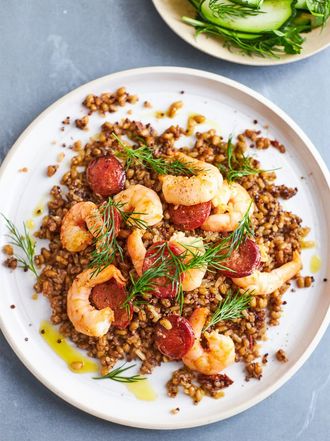Jamie oliver stuffed aubergine curry
Born to an upper-class family, David rebelled against social norms of the day. In the 1930s she jamie oliver stuffed aubergine curry art in Paris, became an actress, and ran off with a married man with whom she sailed in a small boat to Italy, where their boat was confiscated.
They reached Greece, where they were nearly trapped by the German invasion in 1941, but escaped to Egypt, where they parted. In 1946 David returned to England, where food rationing imposed during the Second World War remained in force. Dismayed by the contrast between the bad food served in Britain and the simple, excellent food to which she had become accustomed in France, Greece and Egypt, she began to write magazine articles about Mediterranean cooking. David’s reputation rests on her articles and her books, which have been continually reprinted. David was born Elizabeth Gwynne, the second of four children, all daughters, of Rupert Sackville Gwynne and his wife, the Hon Stella Gwynne, daughter of the 1st Viscount Ridley. Both parents’ families had considerable fortunes, the Gwynnes from engineering and land speculation and the Ridleys from coal mining.

The widowed Stella Gwynne was a dutiful mother, but her relations with her daughters were distant rather than affectionate. Elizabeth and her sisters, Priscilla, Diana and Felicité were sent away to boarding schools. As a teenager David enjoyed painting, and her mother thought her talent worth developing. In 1930 she was sent to Paris, where she studied painting privately and enrolled at the Sorbonne for a course in French civilisation which covered history, literature and architecture. After returning to England in 1932 David unenthusiastically went through the social rituals for upper-class young women of presentation at court as a débutante and the associated balls. The respectable young Englishmen she met at the latter did not appeal to her.
From Oxford, David moved to the Open Air Theatre in Regent’s Park, London, the following year. She rented rooms in a large house near the park, spent a generous 21st birthday present on equipping the kitchen, and learned to cook. At Regent’s Park David made little professional progress. The company was distinguished, headed by Nigel Playfair and Jack Hawkins, and, in the leading female roles, Anna Neagle and Margaretta Scott. After her return to London in early 1937, David recognised that she was not going to be a success on the stage, and abandoned thoughts of a theatrical career. Later in the year she took a post as a junior assistant at the fashion house of Worth, where elegant young women from upper-class backgrounds were sought after as recruits. The outbreak of the Second World War in September 1939 halted their progress.
After stopping briefly at Marseille they sailed on to Antibes, where they remained for more than six months, unable to gain permission to leave. David and Cowan finally left Antibes in May 1940, sailing to Corsica and then towards Sicily. They had reached the Strait of Messina when Italy entered the war on 10 June. They were suspected of spying and were interned. Able to speak excellent French and good German, David secured a job in the naval cipher office in Alexandria. She was quickly rescued from temporary refugee accommodation, having met an old English friend who had an “absurdly grandiose” flat in the city and invited her to keep house for him.